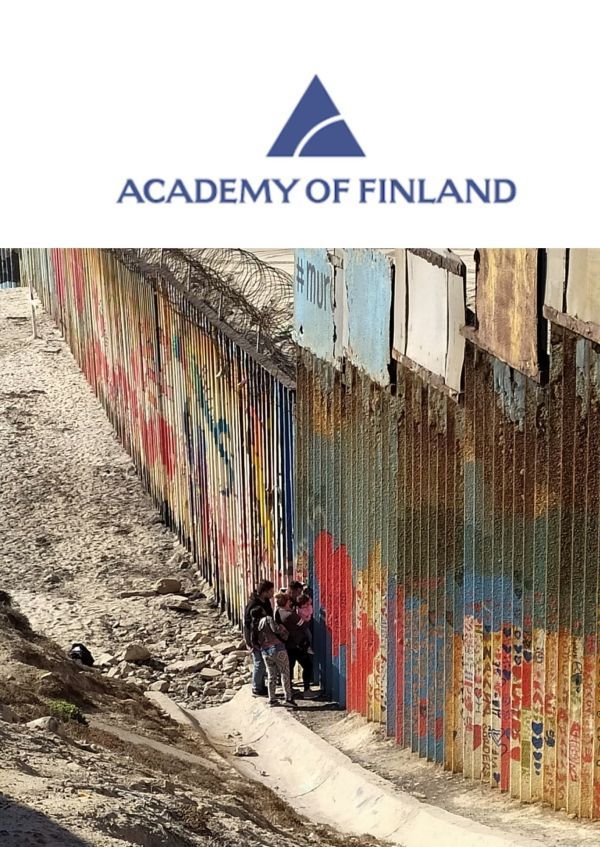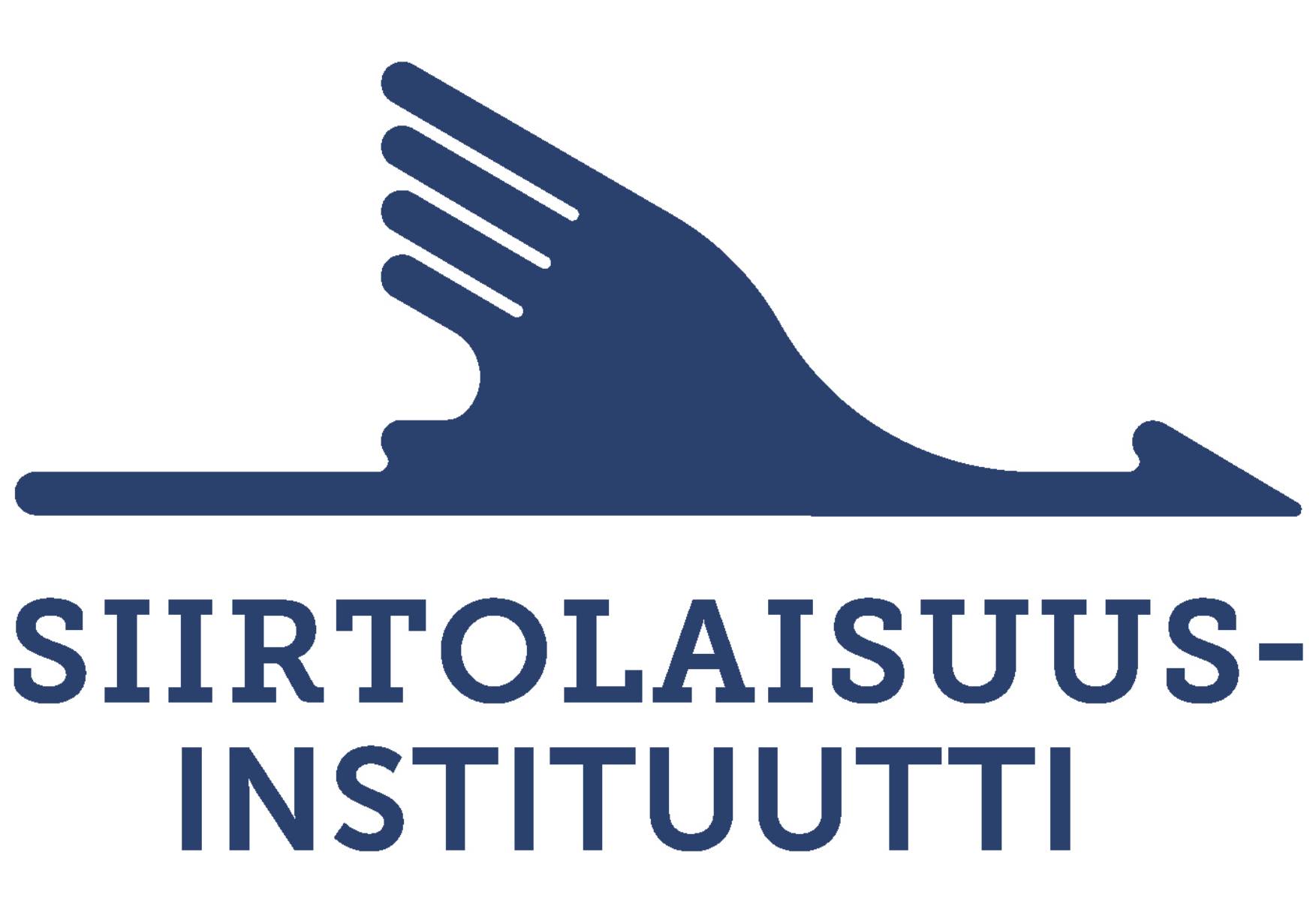Invitation
Welcome to the final seminar of the Academy of Finland funded research project “Family Separation, Migration Status, and Everyday Security: Experiences and Strategies of Vulnerable Migrants” (2018-2022) hosted by the Migration Institute of Finland.
The seminar is divided in two parts. The first part takes place in Helsinki on 18.5.2022 and focuses on the nexus of migration in/from Africa and restrictive EU-policies, resulting in insecurity as experienced by vulnerable migrants and returnees. It will be possible to participate either in place or online.
18.5.2022 / Migration in/from Africa, EU-policies and Everyday (In)security
House of Science and Letters, Helsinki (Runeberginkatu 14-16), A300, and online at 14.00-17.00 pm.
(we follow EEST, Eastern European Summer Time)
For questions, registrations or cancellations, please contact: marja.tiilikainen@migrationinstitute.fi
14.00-14.15 Opening / Senior Research Fellow Marja Tiilikainen, Migration Institute of Finland
14.15-14.45 A region on the move: Politics, migration and displacement in the Horn of Africa / Professor Laura Hammond, SOAS
14.45-15.15 Migration policy and everyday (in)security of rejected asylum seekers / Researcher Abdirashid Ismail, Migration Institute of Finland
15.15-15.45 Coffee & tea
15.45-16.15 Who can be sustainably reintegrated after return? Using post-return monitoring for rights-based return policies / Senior Researcher Jill Alpes, Ghent University
16.15-16.30 Work towards the Reform of the Aliens Act – food for thoughts / Senior Ministerial Adviser Jutta Gras, Ministry of the Interior
16.30-17.00 Discussion
More about the speakers:
Laura Hammond is Professor of Development Studies and Co-Director of the Centre of Migration and Diaspora Studies at SOAS. She has been conducting research on conflict, food security, migration and diasporas in and from the Horn of Africa since the early 1990s. She lived in Ethiopia from 1993-2000, conducting research and working for the UN Emergencies Unit for Ethiopia (the precursor to UNOCHA). Among her research activites, she is Co-Director of the Work Package on Poverty and Inequalities for the Migration for Development and Equality (MIDEQ) Research Hub on South-South Migration. She is Team Leader of the EU Trust Fund’s Research and Evidence Facility on migration and conflict in the Horn of Africa, and Team Leader of the London International Development Centre’s Migration Leadership Team. She has done consultancy for a wide range of development and humanitarian organizations, including UNDP, USAID, Oxfam, Medécins Sans Frontières, the International Committee of the Red Cross, and the World Food Programme. She is the author of ‘This Place Will Become Home: Refugee Repatriation to Ethiopia’ (Cornell University Press: 2004), editor (with Christopher Cramer and Johan Pottier of Researching Violence in Africa: Ethical and Methodological Challenges [Brill 2011] and several book and journal articles.
Abdirashid Ismail is a researcher at the Migration Institute of Finland. Before joining the Migration Institute, he worked at the Department of Social Research of the University of Helsinki as a post-doctoral researcher. He is also an economics policy fellow with the Heritage Institute for Policy Studies (HIPS) in Mogadishu, Somalia. His research interests span two broad fields of studies: First, immigration and diaspora studies, with a particular focus on transnational migration, family well-being, integration and asylum policy. Here his primary research focus is on European Somalis and their transnational families. Second, political economy of conflict and state formation.
Jill Alpes is a senior researcher at the Human Rights Centre Ghent where she is currently working on an ERC-funded research project on evidencing pushback litigation. She is the author of “Abroad at any cost: Brokering high-risk migration and illegality in West Africa” and has carried out different ethnographic studies of migration governance by state and non-state actors. She has fieldwork experience with public authorities and people on the move in Europe (Greece, Italy, France, Netherlands), Africa (Cameroon, DRC, Niger, Nigeria, Mali) and the Middle East (Turkey and Lebanon). She has also engaged with advocacy-drive and protection centered research projects for and in collaboration with NGOs, foundations and international organizations.
For questions, registrations or cancellations, please contact: marja.tiilikainen@migrationinstitute.fi
The second part of the final seminar is organized at the Migration Institute of Finland, Turku, on 19-20.5.2022, but due to uncertain corona situation and limited space, it is mostly accessible online. In the seminar main results from three main research themes will be presented: legal and practical obstacles to family reunification, migration policies and experiences of everyday (in)security, and irregular migration and its impact on family life.

19.5.2022 / Family Separation, Migration Status and Everyday Security
Online and at the Migration Institute of Finland at 9:45am-16:30pm (we follow EEST, Eastern European Summer Time)
For questions, registrations or cancellations, please contact: marja.tiilikainen@migrationinstitute.fi
9.45-10.00 Welcome / Director Saara Pellander, Migration Institute of Finland
10.00-10.30 Background and presentation of the project / Senior Research Fellow Marja Tiilikainen, Migration Institute of Finland
10.30-11.30 Separated families and forced transnationalism in Europe / Professor Eleonore Kofman, Middlesex University London
11.30-12.45 Lunch
Session I: Legal and practical obstacles to family reunification
12.45-13.15 Many obstacles – little advice / University Teacher Jaana Palander, University of Eastern Finland
13.15-13.30 Commentary / Associate Professor Helena Wray, University of Exeter
13.30-13.45 Commentary / Head of Section Leena Turku, Finnish Immigration Service
13.45-14.00 The role of missions in family reunification matters / Desk Officer Päivi Harju-Heikkilä, Ministry for Foreign Affairs of Finland
14.00-14.20 Discussion
14.20-14.45 Coffee & tea
Session II: Migration policies and experiences of everyday (in)security
14.45-15.15 Transnational family, affect and immobility / University Lecturer Johanna Hiitola, University of Oulu
15.15-15.30 Commentary / Professor Laura Hammond, SOAS University of London
15.30-15.45 Voices of young people with refugee background / Abolfazl Ebrahimi and Nasteha Mahamud Mahamed
15.45-16.00 Developing services for unaccompanied minors / Ministerial Advisor Anna Bruun, Ministry of Economic Affairs and Employment
16.00-16.30 Discussion
More about the speakers:
Eleonore Kofman is Professor of Gender, Migration and Citizenship and ci-director of the Social Policy Research Centre at Middlesex University London. She is currently co-Director of the Migration and Displacement stream of the GCRF Hub Gender, Justice and Security (2019-2024). She has written extensively on family migration in journals (JEMS, International Migration) and co-edited Gender, Generations and the Family in International Migration and a chapter on Family Migration, in P. Scholten (ed) Introduction to Migration Studies. An interactive guide to the literatures on migration and migration-related diversities, Springer,
Jaana Palander has a master’s degree in Administrative Sciences (2008) and is currently completing her doctoral studies in Public Law at the Tampere University, Finland. Her doctoral thesis deals with human rights and family reunification. She will join the INDEFI-project as a postdoc researcher in 2024. Currently, she teaches Migration Law and Human Rights Law at the Law School of the University of Eastern Finland. Recently, she has been a researcher in the Migration Institute of Finland in the project ‘Family Separation, Migration Status, and Everyday Security: Experiences and Strategies of Vulnerable Migrants’, funded by the Academy of Finland. Earlier, she has worked as a researcher in the project ‘Multilayered Borders of Global Security’ hosted by the Department of Social Studies at the University of Eastern Finland. She is also a book review editor for the Nordic Journal of Migration Research. Palander has published mostly about law and policy on family reunification.
Helena Wray is Associate Professor in Migration Law at the University of Exeter. She is a former lawyer and an expert on migration law, particularly the regulation of spouse and partner migration. Her latest project is a monograph to be published in 2022 by Hart on how the UK’s Supreme Court has treated family reunification claims made under article 8 of the European Convention on Human Rights (right to respect for family life). She is editor of Journal of Immigration Asylum and Nationality Law and has led several research and consultancy projects, including the provision of expert reports for two test cases in the UK Supreme Court (on pre-entry language testing and the financial conditions for spouses and partners), and for the Children’s Commissioner for England on the impact of the financial conditions on children.
Johanna Hiitola works as a university lecturer in gender studies at the University of Oulu. she havs a PhD is in gender studies (2015, University of Tampere, Finland) and she is a docent (associate/adjunct professor) in social and public policy (University of Eastern Finland) and social work (University of Jyväskylä, Finland). Her research includes intersectional feminism(s), interpersonal violence, family relations and kinship studies, forced migration, ethnic relations and ‘integration’ studies, citizenship scholarship, and, most recently, research on family separation of forced migrants. She is also interested in antiracist pedagogies and different forms of activism.
20.5.2022 / Family Separation, Migration Status and Everyday Security
Online and at the Migration Institute of Finland at 9:45am-12:00am (we follow EEST, Eastern European Summer Time)
9.45-10.00 Opening / Senior Research Fellow Marja Tiilikainen, Migration Institute of Finland
Session III: Irregular migration and its impact on family life
10.00-10.45 Tahriib and everyday insecurity of left-behind families in Somalia / Researcher Abdirashid Ismail, Migration Institute of Finland
10.45-11.00 Commentary / Senior Researcher Jill Alpes, Ghent University
11.00-11.15 The EU cooperation with Sub-Saharan African countries on migration / Francesco Luciani, Head of Unit, G6 migration and forced displacement, European Commission
11.15-11.45 Discussion
11.45-12.00 Concluding words
More about the speakers:
Abdirashid Ismail is a researcher at the Migration Institute of Finland. Before joining the Migration Institute, he worked at the Department of Social Research of the University of Helsinki as a post-doctoral researcher. He is also an economics policy fellow with the Heritage Institute for Policy Studies (HIPS) in Mogadishu, Somalia. His research interests span two broad fields of studies: First, immigration and diaspora studies, with a particular focus on transnational migration, family well-being, integration and asylum policy. Here his primary research focus is on European Somalis and their transnational families. Second, political economy of conflict and state formation.
Jill Alpes is a senior researcher at the Human Rights Centre Ghent where she is currently working on an ERC-funded research project on evidencing pushback litigation. She is the author of “Abroad at any cost: Brokering high-risk migration and illegality in West Africa” and has carried out different ethnographic studies of migration governance by state and non-state actors. She has fieldwork experience with public authorities and people on the move in Europe (Greece, Italy, France, Netherlands), Africa (Cameroon, DRC, Niger, Nigeria, Mali) and the Middle East (Turkey and Lebanon). She has also engaged with advocacy-drive and protection centered research projects for and in collaboration with NGOs, foundations and international organizations.
For questions and cancellations, please contact marja.tiilikainen@migrationinstitute.fi

